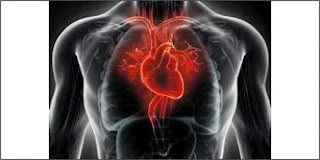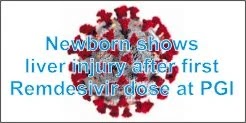APNA HEALTH WEALTH CARE
THE WELLNESS LOOK
Saturday, May 28, 2022
Heart disease, pneumonia, asthma account for 42% of total deaths in India in 2020
Monday, May 23, 2022
Why liver injury after first Remdesivir dose at PGI?
Newborn shows liver injury after first Remdesivir dose at PGI
PGI doctors caution against its use in less severe patients
BGA researchers reported a unique case of a 14-day-old Covid-19-positive infant who exhibited liver damage after being injected with Remdesivir, a commonly used drug.in Covid-19 patients in the second wave. The research paper focused on the use of Remdesivir in young patients.
Doctors at the Center for Advanced Paediatrics, PGI, highlighted the newborn's case in an article titled “Remdesivir induced liver injury in a newborn with Covid,” published in the Indian Journal of Pediatrics.
According to the report, a newborn with Covid-19 who was diagnosed with hypoxemia (low oxygen levels) requiring intubation was admitted to the PGI. During the administration of remdesivir, the child developed transaminitis (liver infection) to stop taking the drug, and, the liver enzymes improved within two weeks.
ALSO VIEW :- The enemies of the heart are diabetes and obesity
This 14-day-old infant developed malnutrition, lethargy, and shortness of breath on the 13th day of life. A child diagnosed with congestive heart failure requires continuous cardiopulmonary resuscitation (CPAP). A chest X-ray showed viral pneumonia and the child was positively diagnosed with Covid. The child worsened the complication and was admitted on day 5 of hospitalization.
Due to the severity of Covid pneumonia, the child was treated with Remdesivir. After starting Remdesivir, the child developed liver damage after the first injection.
Researchers say that drug-induced liver damage is different from Covid-19 liver disease and Remdesivir was discontinued after the first dose.
The researchers said that the baby's liver enzymes were gradually normalized on the 15th day of the hospital stay and that the baby was discharged on the 18th day of breastfeeding.
Because liver failure and recovery are associated with temporal association with the initiation and discontinuation of Remdesivir therapy, respectively, it was considered highly unlikely that drug-induced liver damage could occur there a lot, say the doctors.
YOU MAY LIKE THIS :- What To Feed And Avoid For Proper Nutrition In Children?
Remdesivir has demonstrated shorter hospital stays and modest gains in relative survival and severe Covid infection in adult patients. Remdesivir may increase transaminases and was avoided in patients with pre-existing liver failure. Remdesivir should be used with caution and limited to severe Covid infections, "the paper reads.
Remdesivir has been shown to reduce hospital stay and moderate survival benefit for moderate to severe Covid infections in adult patients. Remdesivir may increase transaminases and should not be used in patients with pre-existing liver failure. Remdesivir should be used with caution and limited to cases of severe Covid infection, "the paper said.
CONCLUSION :-
Newborn shows liver injury after first Remdesivir dose at PGI PGI doctors caution against its use in less severe patients During the administration of remdesivir, the child developed transaminitis (liver infection) to stop taking the drug, and, the liver enzymes improved within two weeks. Researchers say that drug-induced liver damage is different from Covid-19 liver disease and Remdesivir was discontinued after the first dose.
RECOMMENDED VIDEO :- Dr. Nandi: Remdesivir availability and side effects
VISIT OFFICIAL WEBSITE :- https://www.apnahealthwealthcare.com/
Why Individuals Shouldn't Use Mobile Phone While Walking?
Mobile Side Effects During Walk: Use of mobile during walk should not make you sick, know the disadvantages A cellphone has become a lifesav...
TRENDING POST
-
Transforming Lives with ProNail Complex: A Journey to Healthier Nails Transforming Lives with ProNail Complex Introduction Nail health is ...
-
Mobile Side Effects During Walk: Use of mobile during walk should not make you sick, know the disadvantages A cellphone has become a lifesav...
-
Know how ladyfinger proves beneficial in diabetes! Who does not like the vegetable of Bhindi, in any case, do you contemplate its advantages...
-
Customer Satisfaction with ProNail Complex: A Comprehensive Analysis Customer Satisfaction with ProNail Complex Introduction In the compet...
-
Diabetes is a disease that causes as many deaths globally as heart disease, This dual solution can be tried for type 2 diabetes More than 40...
-
Know how can you keep your overall body in the right shape with just 2 exercise Leaning, sitting in the wrong posture in front of the comput...
-
On world mosquitoes day, If mosquitoes have entered the house then these 5 home remedies will be useful Who does not like the rainy season? ...
-
Government becomes strict regarding monkeypox: 21 days monitoring of those who came in contact with the patient; First case found in Kerala ...
-
Know These 10 Healthy Habits For Physical and mental stability The relationship that you share with yourself is the main one. Putting res...
-
Certainly! Let's delve into how "ProNail Complex" and its unique formulation could potentially influence and change your life...


















